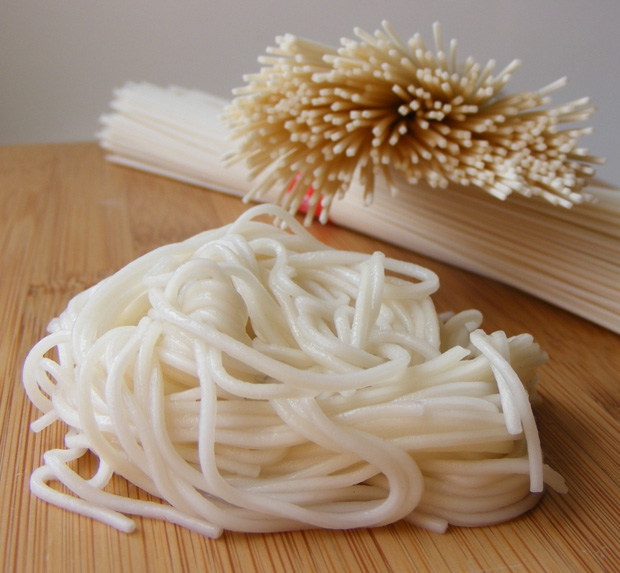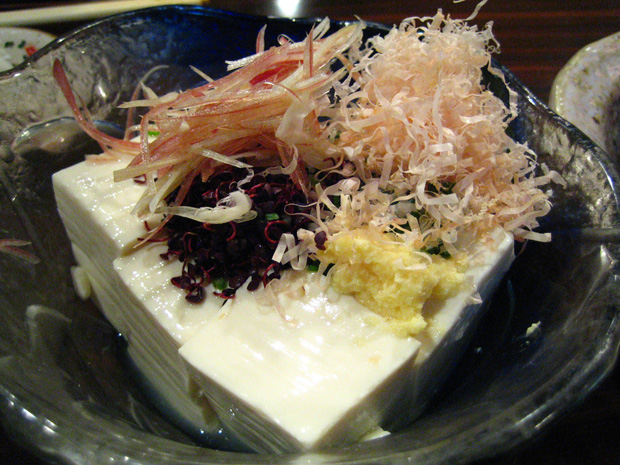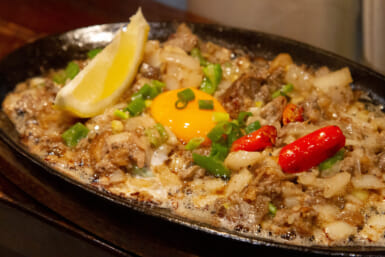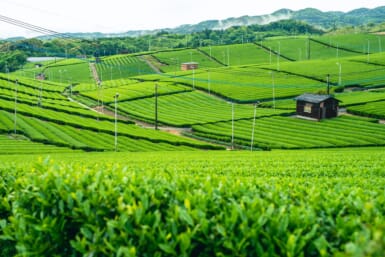by Elisabeth Lambert
Spending your days in the comfort of air-conditioned buildings and trains isn’t the only way to keep the heat and humidity of the Japanese summer at bay. What you put into your body also has an effect on how you adapt to the heat. Certain Japanese foods are seasonal for a reason. Think about it. Body-warming ramen designed to put bulk on your frame isn’t eaten
in winter by accident. So what’s on the menu for summer?
Unagi
Unagi, or eel, is believed to give those who eat it the stamina and vitality to overcome the dreaded natsubate, or summer fatigue. In fact, so revered is unagi as a summer food that each year, around midsummer, comes doyo ushi no hi, or eel eating day. At the very least, eel is a very rich source of vitamins A, B1, B2, B12, D and E. This slippery fish also contains high levels of the essential fatty acids EPA and DHA, which can help decrease cholesterol and increase mental acumen.
Hiyayakko
Quite simply, hiyayakko is a block of refrigerated silken tofu served with toppings of ginger and bonito flakes, along with soy sauce, vinegar and sesame oil. It is an easy meal and extremely refreshing as it is served cold.
Somen
Somen are very light noodles made of wheat flour, are low in calories and a great cooling aid, as they are usually rinsed in cold water or sat in a bowl of ice after cooking. Served with a side of ginger, wasabi or soy sauce, somen noodles are one of the easiest summer dishes to prepare.
Goya
An Asian fruit that makes many appearances in Okinawan cuisine, the extreme bitterness of goya is thought to help those who consume it deal with the summer heat. As a result, more people from mainland Japan are consuming goya by adding it to stir-fries and salads throughout the summer months. Whether or not its heat beating properties are for certain, one thing that is are the high levels of vitamin C found in goya. Links between goya and the long life expectancy of Okinawans are also the subject of many studies in the medicinal and health fields.
Mugicha
A tea made from roasted barley, mugicha is consumed all year round. Mugicha assists with the body’s natural cleansing process and studies have shown it reduces stress. It is naturally caffeine free, so drinking it cold and over ice during the warmer months as a hydration aid won’t leave you sleepless on any summer nights.
Nama Biiru
Let’s face it. Drinking an ice-cold draft beer is probably the nation’s most preferred way of fighting the heat and humidity—and one of the most enjoyable, too. However, it is advised you follow any beer drinking up with plenty of water consumption (try a ratio of one to one), otherwise the heat won’t be the only battle your body will have.










